Science Menu
Careers in Science
Students applying to the Faculty of Science can choose courses and programs within the following areas: veterinary technology, biology, chemistry, geology, horticulture, natural resource science, physics and respiratory therapy. Please find a description of each below along with a listing of potential careers for each. This is just a guide and is by no means complete or guarantee placements in any of these fields.
» Learn more about career services offered by TRU
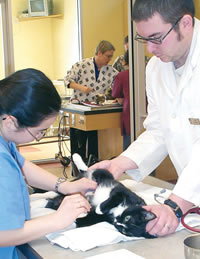
Veterinary Technology
TRU has offered the two-year Registered Veterinary Technologist (RVT) diploma program since 1981. A registered veterinary technologist works under the supervision of veterinarians and veterinary scientists in a variety of areas including diagnostic testing, radiography, medical procedures, office protocol, animal nursing, anaesthesia and surgical assistance
RVT Careers
Although most graduates are employed in private veterinary practices, positions may be obtained with the Federal and Provincial governments’ Health of Animals branches, animal shelters, medical research centers, zoological Parks and other animal oriented areas in the public and private sectors.
The TRU program trains students for careers as veterinary professionals and is fully accredited by the Canadian Veterinary Medical Association.
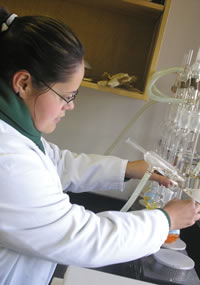
Biological Sciences
For students interested in the study of living organisms there are 5 major programs to choose from, General Biology, Animal biology, Ecology and Environmental Biology, Cellular, Molecular and Microbial Biology and Chemical Biology. You will experience a great deal on hands on learning and opportunities for research.
Careers in Biological Sciences
Graduates have gone on to successful careers in medicine, veterinary medicine, medical genetics, university, elementary and high school teaching, dentistry, wildlife biology, physiotherapy, pharmacy, biotechnology, chiropractic, optometry, microbiology, conservation and land management, marine biology, toxicology, bioengineering, molecular biology and more.
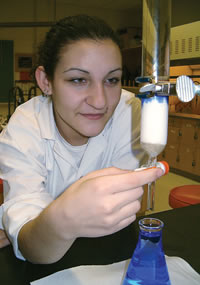
Chemistry
Chemistry is the basic science concerned with the structure and behaviour of atoms (elements); the composition and properties of compounds; the reactions that occur between substances and the resultant energy exchange and the laws that unite these phenomena into a comprehensive system. A knowledge of chemistry is required for all fields of scientific endeavour since chemistry is everywhere and affects every aspect of our lives, the water we drink, the air we breathe, the energy we use and the new materials that we use in our modern world.

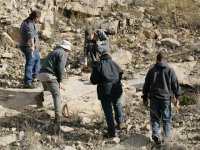
Geology
Geology is the study of the Earth, the materials of which it is made, the structure of those materials, and the processes acting upon them. It includes the study of the organisms which inhabit our planet. A very important part of geology is the study of how Earth’s materials, structures, processes and organisms have changed over time.
Geologists work to understand the history of our planet. The better they can understand Earth’s history the better they can foresee how events and processes of the past might influence the future.
Careers in Geology
Geologists work in a variety of settings which include: natural resource companies, environmental consulting companies, government agencies, non-profit organizations, and universities. Many geologists do field work at least part of the time. Others spend their time in laboratories, classrooms or offices. All geologists prepare reports, do calculations and use computers. Although a bachelor's degree is required for entry level employment, many geologists earn masters and/or doctorate degrees. The advanced degrees provide a higher level of training, often in a geology specialty area such as paleontology, mineralogy, hydrology or volcanology. Advanced degrees will often qualify the geologist for supervisory positions, research assignments or teaching positions at the university level. These are some of the most desirable jobs in the field of geology.
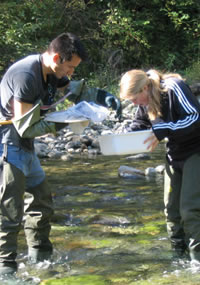
Natural Resource Science
This four-year degree program prepares students for careers in the natural resource sector or for further academic study in graduate school. The program provides a unique combination of courses covering biology, ecology, scientific methods, and sector-specific resource management skills in a cooperative education format. Students will learn problem solving, oral and written communication skills, and integration of various disciplines in both an independent and team environment.
Courses and fieldwork give students technical skills in a wide variety of management disciplines. Upon graduation, students will have acquired technical abilities in assessing the status of ecosystems. This assessment covers aspects such as forestry, fisheries, range, and wildlife management.
Careers in Natural Resource Management
Resource management and planning for government or industry, operational forestry, teaching, museum curator, industry research, environmental consulting, scientific writers, research scientist, Scientific computation, and more.
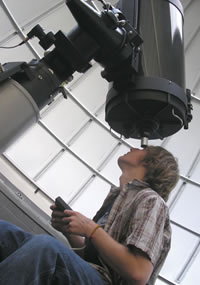
Physics
All other sciences and technologies rely on the principles of physics by applying them to their systems of interest and/or by using technology based on them. Physics is evident in the world around us, in everything from the seasons, the motion of objects, the flight of birds, the night sky and the weather, to lasers, electronics, and all the technology we rely on day by day. The TRU major in physics program has been designed to serve multiple interests and career plans.
Careers in Physics
Physics graduates have gone on to work as teachers, professors, engineers, medical physicists, research scientists, astronomers, automotive industry, electronics and audio industry, manufacturing industry, laboratory technicians, and space research.
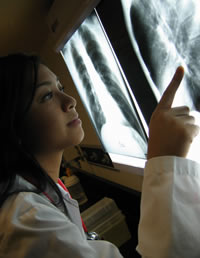
Respiratory Therapy
A Respiratory Therapist is a multi-faceted health care professional, who specializes in the assessment and treatment of cardiopulmonary disorders. Respiratory Therapists evaluate, treat and care for patients with breathing disorders such as asthma and emphysema. Respiratory Therapists also perform chest physiotherapy and provide emergency care for patients who suffer from heart failure, stroke, drowning, or shock. To evaluate patients, Respiratory Therapists measure lung capacity, and analyze the oxygen, carbon dioxide, and ph levels of the blood.
Respiratory Therapists are in great demand in hospitals (life flight, newborn intensive care, respiratory care, hyperbaric, pulmonary and anesthesiology departments), respiratory therapy clinics, extended care facilities, nursing homes, and home health.

